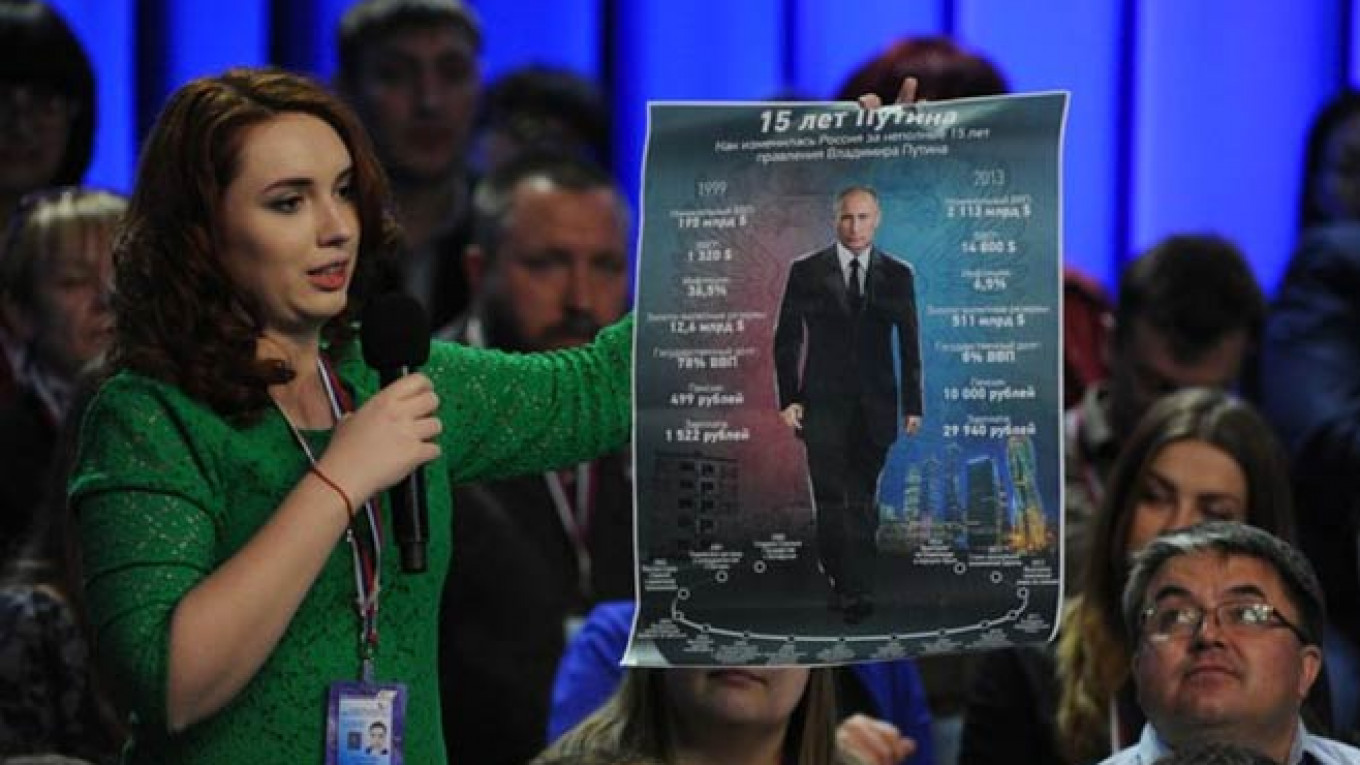President Vladimir Putin said Thursday that the Internet was a CIA project and that Russia's most popular search engine Yandex had been subject to Western influence when it started out.
The president told a media forum that the Internet "emerged as a special project of the U.S. CIA and develops as such," Interfax reported.
"When they [Yandex] had just started out, they also came under pressure: They had to have a certain number of Americans, a certain number of Europeans, and they were forced to agree to that," Putin said, Interfax reported.
He told the forum, organized by his All-Russia People's Front organization, that the company was partly registered abroad, "not only for tax purposes but for other reasons."
The search engine's parent company Yandex NV is registered in the Netherlands and made its IPO on the New York-based NASDAQ exchange in 2011.
Yandex responded to the president's comments, saying that foreign investment "is normal practice for any Internet startup in any country in the world," and that "the financial interests of investors and the directors of the company at Yandex have always been separate," Interfax reported.
The company said it paid "practically all" its taxes in Russia, and that it was registered in the Netherlands due to peculiarities in corporate law, not for tax reasons, the news agency reported.
Putin said the U.S. was the "pioneer of the [Internet] field, and they are trying to hold on to their monopoly. But that is impossible in the modern world and we need to purposefully fight for our interests."
The State Duma passed legislative changes earlier this week requiring social media websites to keep their servers in Russia and store users' information for six months, restrictions that some observers speculate could lead to conflicts with foreign sites such as Facebook, Gmail and Skype, and even to the blocking of access to these sites in Russia.
The founder of Russia's Facebook analogue Vkontakte, Pavel Durov, said earlier this month that he had received government requests for information about Russian opposition and Ukrainian protester pages but refused to comply. After announcing on Monday that he had learned of his firing from Vkontakte through the media, Durov left Russia and has said that he is currently in Central Europe looking for a base from which to start a new mobile social network.
Last week, the State Duma passed amendments to an anti-terrorism bill that will allow Russian bloggers to be prosecuted for publishing content deemed to be a threat to national security.
Under the amendment, any blogger, social network site or personal website receiving more than 3,000 hits a day with commercial advertising on their blog will be categorized as online media.
The fines for breaking the new law range from 10,000 to 50,000 rubles ($280 to $1,400) for individuals, and 50,000 to 500,000 rubles for legal entities.
A Message from The Moscow Times:
Dear readers,
We are facing unprecedented challenges. Russia's Prosecutor General's Office has designated The Moscow Times as an "undesirable" organization, criminalizing our work and putting our staff at risk of prosecution. This follows our earlier unjust labeling as a "foreign agent."
These actions are direct attempts to silence independent journalism in Russia. The authorities claim our work "discredits the decisions of the Russian leadership." We see things differently: we strive to provide accurate, unbiased reporting on Russia.
We, the journalists of The Moscow Times, refuse to be silenced. But to continue our work, we need your help.
Your support, no matter how small, makes a world of difference. If you can, please support us monthly starting from just $2. It's quick to set up, and every contribution makes a significant impact.
By supporting The Moscow Times, you're defending open, independent journalism in the face of repression. Thank you for standing with us.
Remind me later.






